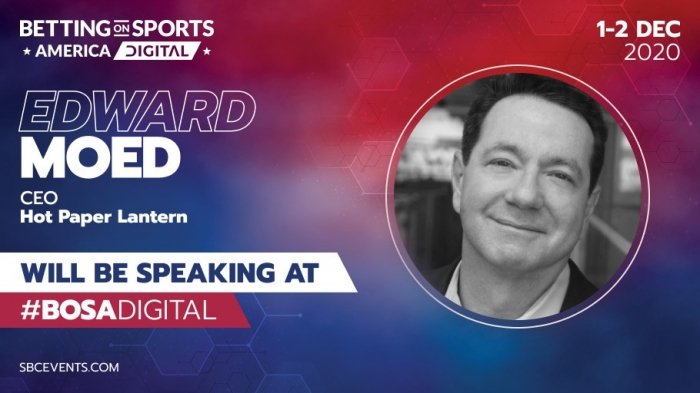
E
d Moed will take part in the Understanding the American Player conference session, alongside Max Bichsel (VP of US Business, Gambling.com Group), Todd Kobrin (CEO, Oddsium), and Lauren Seiler (Managing Director, Four Wood Capital Partners), on December 2, the second day of Betting on Sports America – Digital.
How does the US player differ from sports bettors in the longer established markets in Europe?
The European sports betting market is well established, decades ahead of the US. For many years, platforms have tinkered with what will engage sports bettors more based on understanding their needs. So, the European bettor is more established and really understands what drives them to bet. Whereas, the US market is years behind because regulation is now happening at a torrid pace. We are potentially seeing millions of new bettors entering this marketplace, and while some of their interests are universal with European bettors (make it simple, easy, give me great odds, etc.), there is a new bettor who is more casual about what he or she cares about.
For the first time, the amount of women in US betting is growing exponentially. This casual US bettor also wants to have fun. They’re asking themselves, “how do I bring my friends along for the ride?” Or, “how can I build a larger sense of community with others around betting”. Understanding what makes this casual bettor engage, purchase, preferences in other brands, hobbies, etc., will be very important in winning them over.
What do you see as the most effective strategies for reaching US players? And do new arrivals to North America have to adopt a different approach to established US gambling and fantasy brands that are now targeting the sports betting market?
I think it goes back to understanding what attracts any consumer to any product in any new category. Brand is always key. There is an opportunity to build brands in this space in a more sophisticated way because it isn’t happening all that much right now. Instead of incorporating the herd mentality with sheep, create a unique brand and deliver it to this audience in a way that leverages high-level creative, touches them through multimedia approaches that are different and reaches out to those influencers (friends and families) who matter most. Clearly, having an easy to use, differentiated product is the place to start. But, building brand will go a long way right now in this immature space that is rife with opportunity.
Some international sports betting operators have decided against entering the US at the minute, citing the current high cost of player acquisition as a factor. What can operators do to lower their acquisition costs and still compete for market share against some of the world’s biggest gambling companies?
Rule number one is stop solely depending on Facebook advertising for ongoing customer acquisition. It isn’t the only channel and absolutely will have a law of diminishing returns, as well as tends to be fairly expensive. Secondly, because so many states continue to legalize sports betting each month, there seems to be a race for new customers, but what is being left behind is retaining current ones. Rule number 2 is that it costs a lot less to retain current customers than it does to develop new ones. Loyalty needs to be the next buzz word that echoes through this industry. By building a more loyal group of members, sportsbooks can greatly decrease their cost of acquisition.
Which US states are likely to have the most healthy competition between operators?
Like in any marketplace, those states which have the most platforms vying for the same bettors, will be most competitive in terms of what benefits they offer to customers. At this point, this would include New Jersey, Nevada, and those other states with the most physical and online sportsbooks.
As legal sports betting continues to roll out across the US, what do you think the future holds for the fantasy sports industry?
I think that the fantasy sports industry will only continue to grow. That’s because consumer demand for it is insatiable, especially around professional football. Like any other market, there will be shake out. Platforms which offer a unique type of fantasy play, that also build their products and brands to be desirable, will win. Many of these platforms have entered this space as a way to eventually dive into the sports betting market. Over the next few years, we will see how these platforms move to more of a DraftKings/FanDuel model by offering both fantasy sports and sports betting.
Finally, what does HPL Digital Sport have planned for 2021?
Our goal is to always help our clients in this space make their brands more relevant and to target audiences that’ll help them acquire and retain new customers. That’s what we do best. Understanding that, we have taken it upon ourselves to ascertain what the sports bettor and fantasy sports player care about. What drives them to engage? How are their attitudes and wants changing? We will continue to conduct our research in this area so that we can help our clients, including platforms, content players, technology providers, and big brands looking to enter this space, be successful.
Register for Betting on Sports America – Digital for free here.
Original article: https://www.yogonet.com/international//noticias/2020/12/01/55637-loyalty-needs-to-be-the-next-buzz-word-that-echoes-through-this-industry














